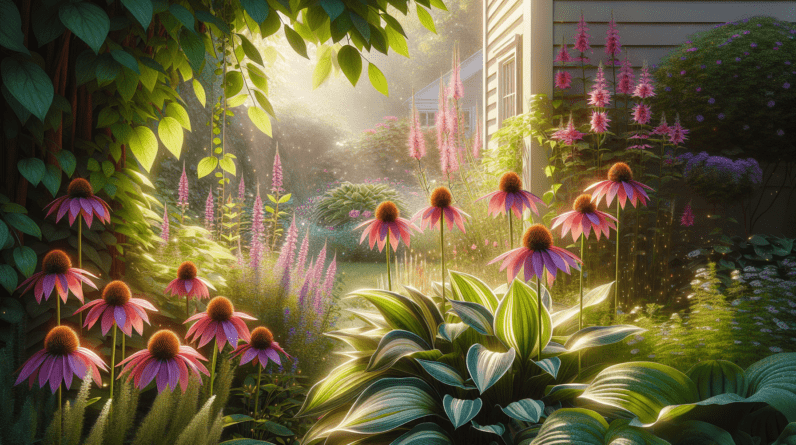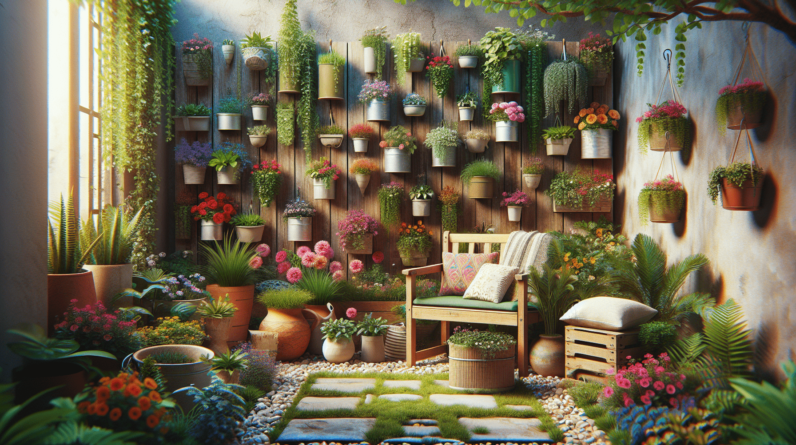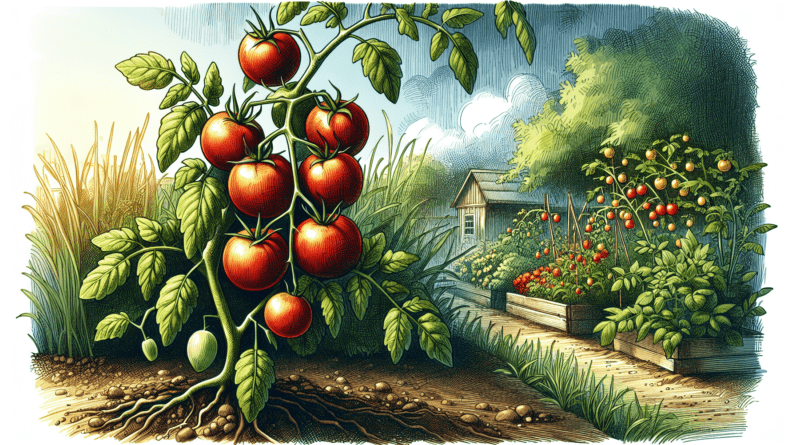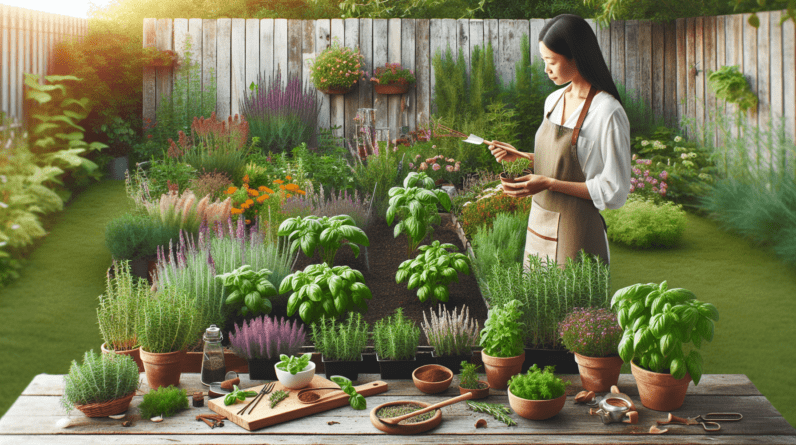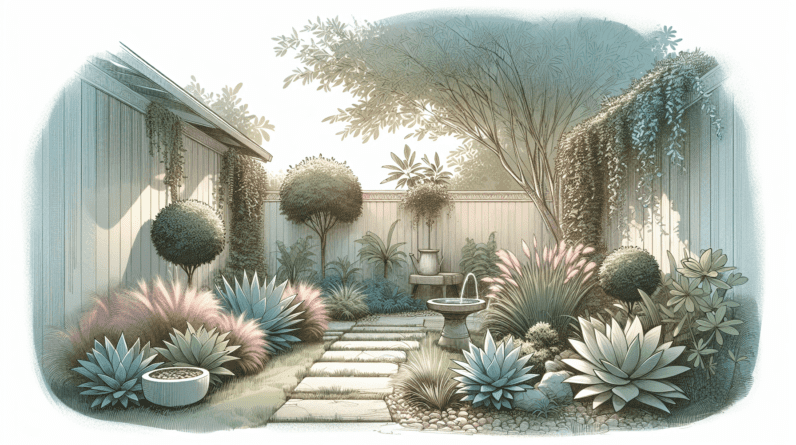
Building your dream backyard garden doesn’t have to mean endless hours of weeding, watering, and upkeep. In “How To Create A Low-Maintenance Backyard Garden,” you’ll discover practical tips and insights to cultivate a beautiful outdoor space that practically takes care of itself. From selecting the right plants to optimizing your landscape design, you’ll learn how to enjoy a lush, vibrant garden without the constant demand for attention. Get ready to unlock the secrets to a serene and sustainable sanctuary right in your own backyard. Have you ever dreamt of transforming your backyard into a lush, low-maintenance garden without spending hours every week in upkeep? Well, the good news is, it’s possible, and you don’t have to be an expert gardener to achieve it. In fact, with a few smart choices and some planning, you can create a backyard oasis that thrives with minimal attention. Let’s dive into the steps you need to take to create a low-maintenance backyard garden.
Understanding Your Space
Before you start planting, it’s crucial to understand your backyard’s unique characteristics. Take a moment to observe the space. It’s like getting to know a new friend; you need to understand its quirks and qualities.
Soil Type and Quality
First things first, what kind of soil are you dealing with? Is it sandy, clayey, or loamy? You can easily find out by doing a simple soil test. Knowing the type and quality of your soil helps you choose the right plants that will thrive without much fuss.
Sunlight and Shade
Notice where the sun falls in your garden at different times of the day. This will affect which plants will grow best in different parts of your yard. Plants are like people—some love basking in the sun, while others prefer the shade.
Climate Considerations
Consider your local climate. What are the typical temperatures and precipitation levels throughout the year? This will help you select plants that are well-suited to your environment, reducing the amount of extra watering and protection they’ll need.
Choosing The Right Plants
Selecting the right plants is pivotal in creating a low-maintenance garden. It’s like choosing your teammates; you want ones that can handle things without constant supervision.
Native Plants
These plants are already adapted to your local conditions, so they require less water, fertilizer, and pesticides. Plus, they’re better for local wildlife. Check out your local garden center for a variety of native plants.
| Native Plants for Different Regions | Examples |
|---|---|
| Northeast | Black-eyed Susan, Coneflower |
| South | Texas Sage, Coral Honeysuckle |
| Midwest | Prairie Dropseed, Blazing Star |
| West | California Poppy, Manzanita |
Perennials Over Annuals
Perennials come back year after year, unlike annuals which need to be replanted. This not only saves you time but also money. Many perennials are also more resistant to pests and diseases.
Low-Maintenance Favorites
Some plants are just naturally easier to care for. Consider incorporating these low-maintenance champions into your garden:
- Lavender: It’s drought-tolerant and adds a beautiful splash of purple.
- Hostas: Great for shady areas and require little care.
- Sedums: Succulent leaves mean they need very little water.
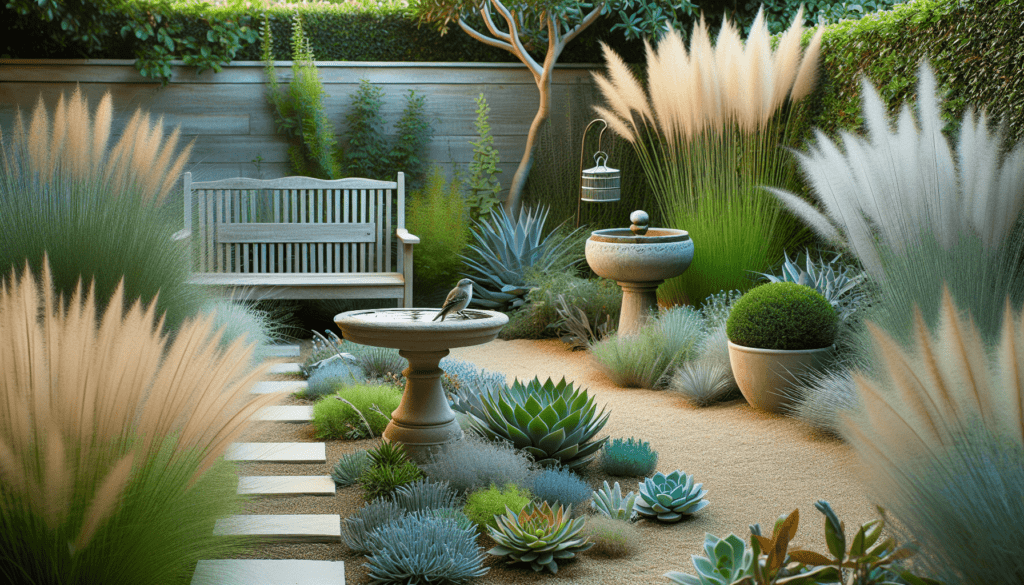
Efficient Watering Systems
Watering your garden doesn’t have to be a daily chore. With some clever planning, you can make sure your plants get all the water they need without much effort from you.
Drip Irrigation
A drip irrigation system delivers water directly to the roots, minimizing wastage. It’s like giving your plants a drink, right where they need it. It’s a bit of an upfront investment but saves time and water in the long run.
Rain Barrels
Collect rainwater in barrels and use it for your garden. It’s an eco-friendly option that also cuts down on your water bill. Place them under downspouts to collect the maximum amount of water.
Mulching
Mulch helps retain moisture in the soil, meaning you’ll have to water less frequently. It also suppresses weeds, giving you a break from constant weeding. Organic mulches, like wood chips or straw, also break down over time, enriching your soil.
Smart Garden Planning
A low-maintenance garden doesn’t happen by accident. Think of it like arranging furniture in your home; strategic placement can make or break the space.
Grouping Plants by Their Needs
Place plants with similar water, sunlight, and soil requirements together. It simplifies your care routine because you won’t have to cater to different needs in the same space.
Utilizing Ground Cover
Ground covers are plants that grow low to the ground and spread out. They reduce the area you need to weed and can be a beautiful addition. Consider options like creeping thyme or ajuga.
Raised Beds
Raised beds help reduce the time you’ll spend weeding and watering. They also make it easier to improve the soil quality, meaning your plants can thrive with fewer inputs.
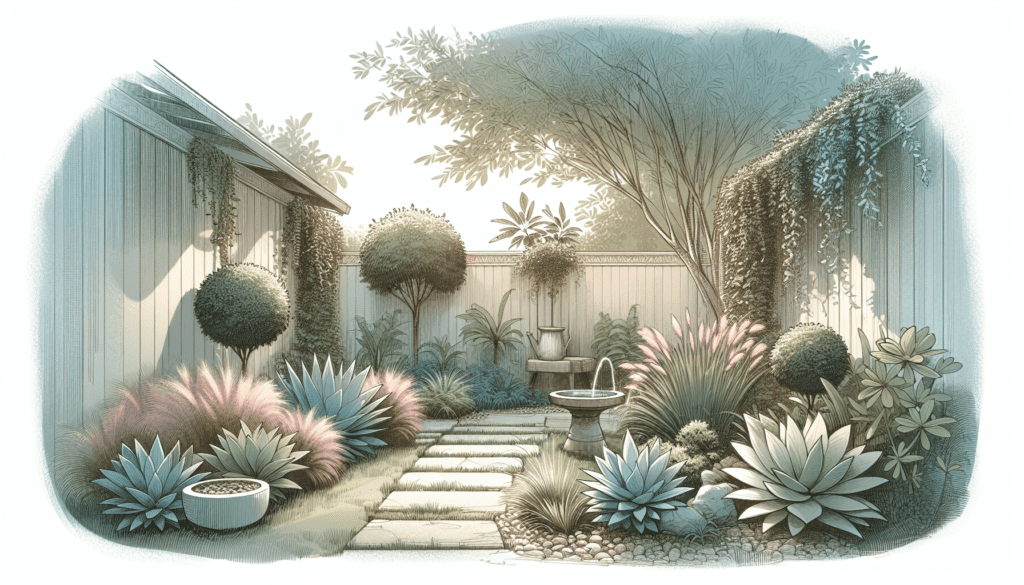
Minimizing Maintenance Tasks
Once everything is in place, you can further reduce your workload with a few clever tactics. Think of these tips as your garden’s self-cleaning feature.
Weed Barriers
Install weed barriers under your mulch. These can be simple landscape fabrics that prevent weeds from taking root while still allowing water to penetrate the soil.
Automating Fertilization
Slow-release fertilizers and compost applications can ensure your plants are fed without constant oversight. Granular fertilizers that break down over time make feeding your garden virtually set-and-forget.
Pruning and Deadheading Smartly
Some plants need occasional pruning or deadheading to look their best. Choose plants like ornamental grasses, which don’t need yearly pruning, or look into the blooming cycles of your perennials to minimize these tasks.
Incorporating Low-Maintenance Features
Plants are only one part of your garden. Other features can also be designed for minimal upkeep, leaving you more time to enjoy your space.
Hardscaping
Incorporate elements like patios, walkways, and stones. These features are incredibly low-maintenance and create visual interest while reducing the amount of space you need to care for.
Furniture and Decor
Choose weather-resistant furniture and decor that doesn’t require frequent cleaning or storage. Materials like teak, metal, and certain plastics are great low-maintenance options.
Lighting
Solar-powered garden lights are a fantastic way to illuminate your space without adding to your energy bill or requiring complex wiring. Plus, they’re low-maintenance since they charge themselves during the day.
Maintaining the Low-Maintenance Garden
Even the best-laid plans need a little upkeep. Here’s how to keep your garden looking lovely without turning it into a part-time job.
Seasonal Tasks
Divide your gardening tasks by season to make them more manageable. A little bit of planning goes a long way in ensuring that your garden remains low-maintenance year-round.
| Season | Tasks |
|---|---|
| Spring | Add mulch, plant perennials, install drip irrigation |
| Summer | Watering, light pruning, weed control |
| Fall | Rake leaves, add compost, plant bulbs |
| Winter | Cover tender plants, plan for next year |
Regular Walkthroughs
Take a weekly stroll through your garden. This way, you can catch any issues early, before they turn into bigger problems. It’s a relaxing way to stay on top of things.
Staying Organic
By using organic methods, you keep your soil healthy, which in turn makes your plants healthier and more resilient. Natural predators, compost, and organic mulches can all contribute to a sustainable garden.
Wrapping Up
Creating a low-maintenance backyard garden is far from impossible. It just requires some thoughtful planning and smart choices. Think of it like crafting the ultimate playlist; each element should flow seamlessly into the next, creating a harmonious whole. With the right plants, efficient watering systems, and strategic design features, you can enjoy a beautiful, thriving garden that doesn’t demand all your time and energy.
You’ve now got the know-how to create a garden that practically takes care of itself. Imagine the joy of relaxing in your beautiful, low-maintenance backyard oasis. The fruits of your labor will not only add beauty to your home but also provide a peaceful space to unwind. Here’s to a greener, easier, and more enjoyable garden!

